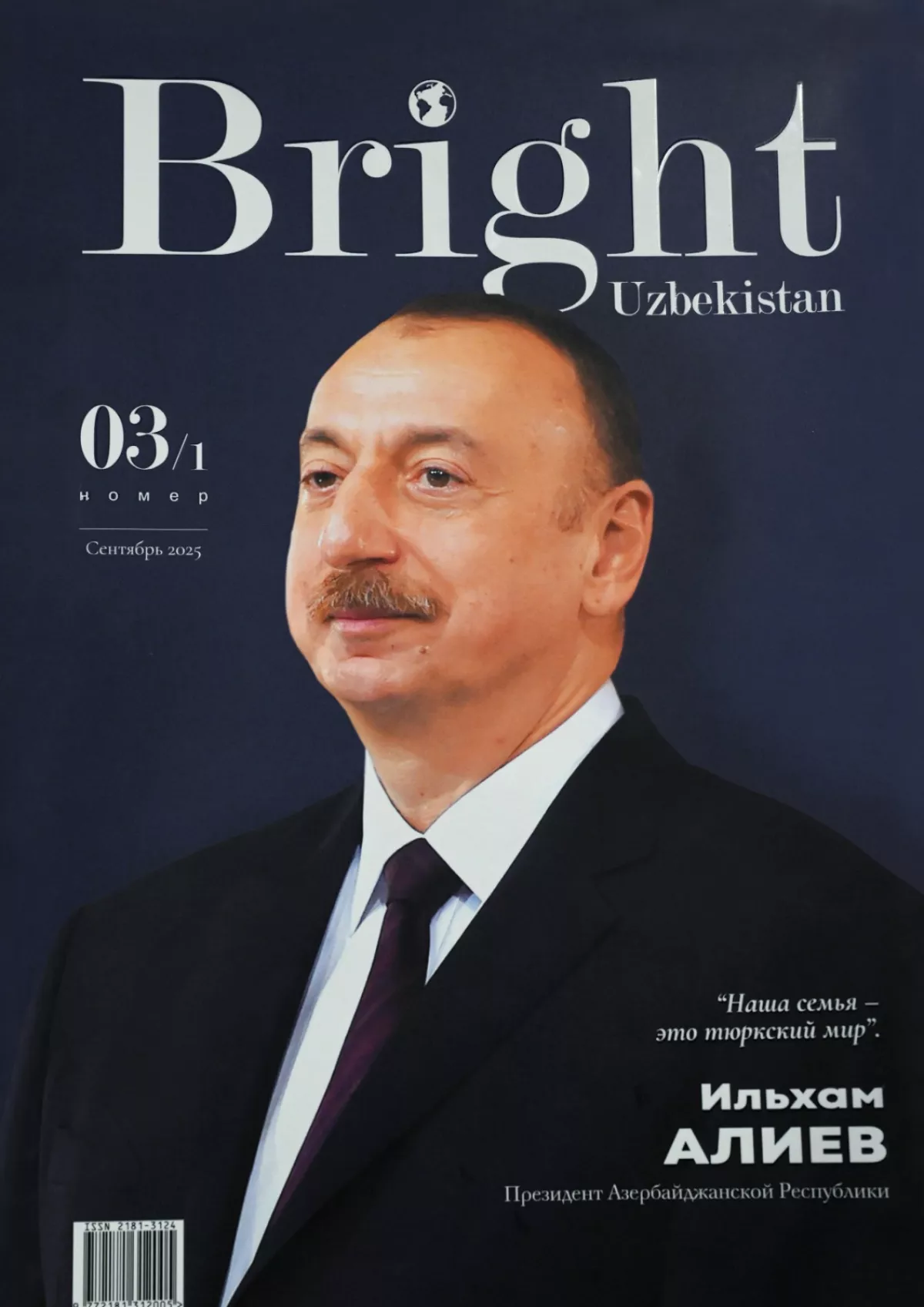Bright Uzbekistan: Azerbaijan’s non-oil sector fuels economic growth PHOTO
Economy Minister Mikayil Jabbarov gave an interview to the international magazine Bright Uzbekistan on the development of Azerbaijan’s economy, cooperation within the Organisation of Turkic States, and the partnership between Azerbaijan and Uzbekistan.
According to Caliber.Az, in his interview, Jabbarov emphasised that the friendly relations between Azerbaijan and Uzbekistan have been built on a shared history, traditions, culture, and values of the two nations. These deeply rooted ties serve as a strong foundation for the further development of bilateral cooperation:
“In particular, mutual visits by heads of state and high-level meetings elevate the Azerbaijan–Uzbekistan strategic partnership to a new, higher-quality level, stimulating steady development of mutually beneficial cooperation. I would especially like to highlight the opening of the Mirzo Ulugbek School in the city of Fuzuli, liberated from occupation, attended by the heads of state and gifted on behalf of the people of Uzbekistan. This school became the first gift from a foreign country in the process of restoring Karabakh. We highly appreciate this example of brotherhood, solidarity, and support.”
The Minister of Economy noted that today, Azerbaijan is moving forward on the path of sustainable economic development and significant economic reforms, which are highly valued by society. As a result of the structural changes undertaken and the diversification of the non-oil-and-gas sector, this sector has already become the main driving force of the country’s economy:
“In recent years, our country has been actively developing the non-oil-and-gas sector. The key priority areas in this sphere include ICT, tourism, transport, energy—particularly renewable and alternative energy sources—as well as agricultural product processing.”
Jabbarov emphasised that the widespread adoption of modern technologies and the engagement of highly competitive human capital in the leading sectors of the national economy have created conditions for significant growth in labour productivity, diversification of domestic production, and effective integration into global value chains:
“As a result of the substantial structural changes implemented in recent years and the successful diversification policy, the non-oil-and-gas sector has become the main factor driving Azerbaijan’s economic development. A multi-vector economic policy, large-scale measures for the restoration and reintegration of liberated territories, and steps to diversify the economy ensure sustainable growth and development in the medium and long term.”
The minister added that Azerbaijan faces new challenges in the next stage to ensure future success and accelerate economic growth. The goals set are detailed in the documents Azerbaijan 2030: National Priorities for Socio-Economic Development and Strategy for Socio-Economic Development of the Republic of Azerbaijan for 2022–2026. As part of the strategy’s implementation, measures are being taken to stimulate the development of strategic economic sectors, expand digital transformation, increase investments, strengthen the innovation ecosystem, and effectively implement incentive mechanisms.
The minister noted that Azerbaijan is not only an active participant in the oil sector but also engages in the international “non-oil” agenda—industrial, construction, agricultural, and other sectors—being an initiator of major regional and international events. It was emphasised that the 2023 SPECA Economic Forum held in Baku marked a new stage in regional cooperation. In addition, the initiatives presented during the UN Climate Change Conference COP29, held in Baku in November 2024, serve to strengthen mutually beneficial cooperation between Azerbaijan and the countries of Central Asia, including Uzbekistan.
It was noted that cooperation between Azerbaijan and Uzbekistan is multi-faceted, covering a wide range of sectors, with business representatives from both countries establishing successful partnerships in various fields. One of the most striking examples of such cooperation is the significant progress in the automotive industry. Currently, mutually beneficial collaboration in this area continues to develop. In May 2023, in the Hajigabul industrial district, Uzavtosanoat (Uzbekistan) and Azərmaş CP (Azerbaijan) laid the foundation for a plant to localise car production. The total investment value of the project exceeds $60 million.
Jabbarov shared his views on the priority areas of economic cooperation between Azerbaijan and Uzbekistan:
“Azerbaijan pays special attention to expanding economic ties with Uzbekistan and shows strong interest in cooperation in areas such as transport, industrial cooperation, energy, textile, mining, chemical industry, and electrical equipment. Today, Azerbaijan and Uzbekistan cooperate across many sectors—including economic, transport, and cultural spheres—and implement numerous joint projects.”
The minister highlighted the wide-ranging opportunities to expand partnership across various sectors. In particular, there is significant potential for Uzbek companies to operate in the territories liberated from occupation—within the Agdam Industrial Park, the Aras Valley Economic Zone, and the Alat Free Economic Zone. The activities of the Azerbaijan–Uzbekistan Investment Fund and the important role of the Organisation of Turkic States in deepening economic ties between the two countries were also emphasised.
Steps being taken to implement joint projects, expand cooperation among business communities, and explore further prospects were noted. In this context, the initiative of the “Green Energy Bridge,” which starts in Central Asia and passes through Azerbaijan to Europe, was highlighted, along with Azerbaijan’s strategic potential in transport and logistics. Against the backdrop of expanding opportunities along the Middle Corridor, prospects for cooperation in transit and logistics, the role of the Baku International Sea Trade Port in this corridor, joint investment initiatives, exchange of experience and innovations, as well as opportunities to deepen cooperation in digitalisation, were also emphasised.









